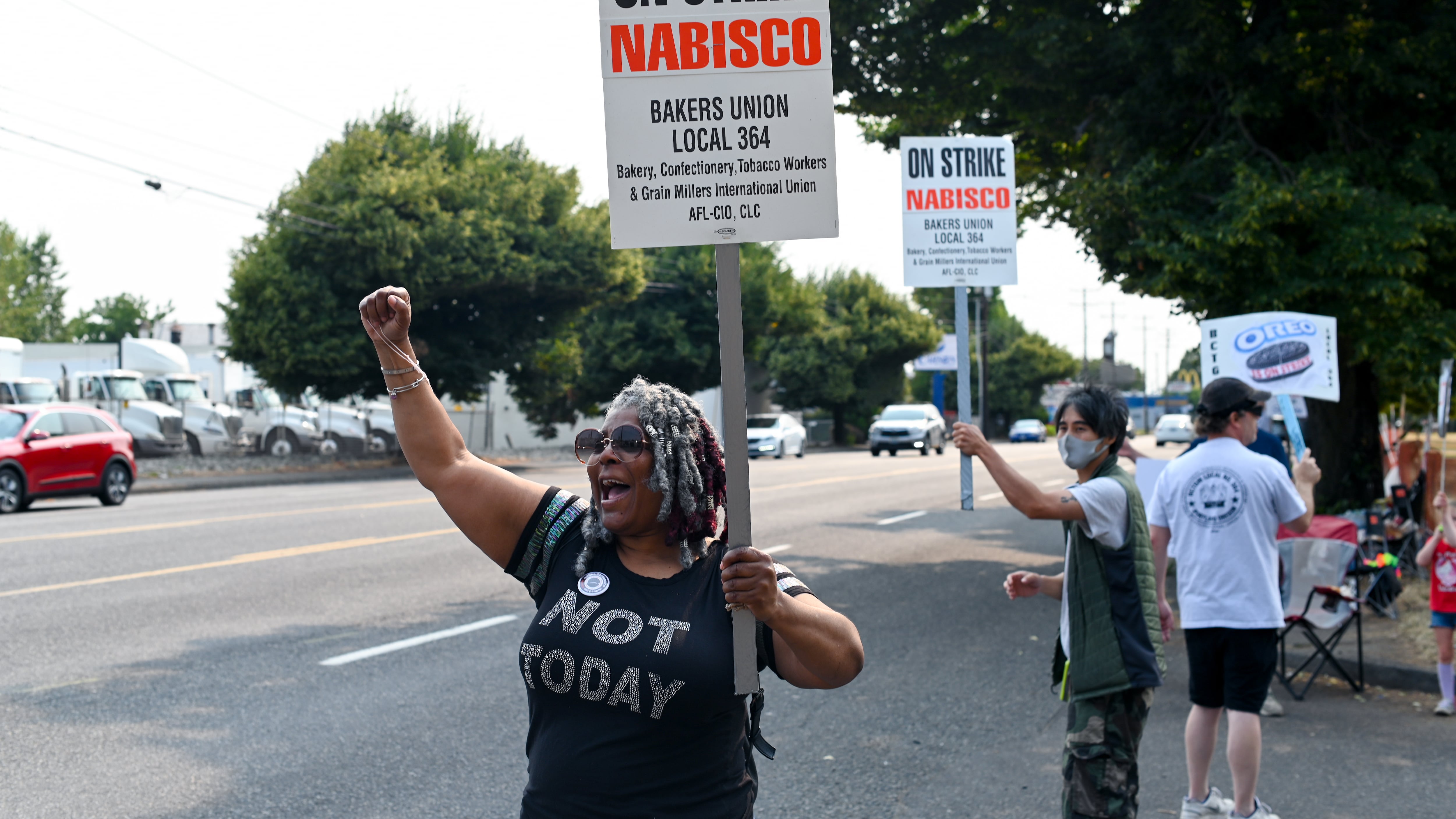For the past 16 days, members of the Bakery, Confectionery, Tobacco Workers and Grain Millers’ Union Local 364 have stood outside of the Nabisco bakery in Northeast Portland where they make Oreos, Chicken in a Biskit, Ritz and Chips Ahoy! and held signs as honking cars and semi-trucks speed down Northeast Columbia Boulevard.
The Portland strike by the local bakers’ union, which began on Aug. 10, has now extended to all other Nabisco facilities across the country.
As of Aug. 25, all three Nabisco bakeries in Chicago, Portland and Richmond, Va.—and all three distribution facilities in Aurora, Colo., Addison, Ill., and Norcross, Ga.—are striking against the proposals to change the health care plan and cut overtime pay on the weekends by altering the schedule.
Mike Burlingham, vice president of the union, tells WW that a large bus with tinted windows rolls into the Portland facility each morning before 6 and enters through a gate that’s then closed behind them. Strikers think the daily buses are carrying strike breakers—workers fulfilling the job duties of the 200 workers on strike with the union.
“They brought people in on a large charter bus with blacked-out windows,” Burlingham says. “They go to an area where we can’t see them [unload].”
The same bus totes people away around 6 every evening, according to strikers.
A video taken by strikers and shared with WW shows a huge, sleek bus with eight wheels and darkened windows rolling into the facility before the sun was up on Aug. 17.
As the bus turns into the factory, strikers can be heard making noises at the bus. One female striker can be heard saying, “We must be hella scary!”
Mondelez did not answer WW’s questions on Thursday about whether it’s bringing nonunion workers into the bakery each day in buses and, if so, how many workers it’s toting in and out or where they’re being sourced from.
Last week, a spokesperson for Mondelez International, the company that owns Nabisco, told WW that the company had a contingency plan in place to continue operations. They did not expand on what that plan was—but strikers allege workers are being brought in to fulfill job responsibilities abandoned by the strikers.
“I am not in a position to share specifics of our business continuity plans, but we have salaried teams in place at our facilities, along with having business continuity aspects to ensure that we continue to meet the needs of our customers and consumers,” a spokesperson told WW last week.
The union has been without a contract since June 1, and union representative Mike Burlingham says Mondelez, the giant snack company, still refuses to negotiate with the union for a mutually beneficial contract.
“The company met with our international Tuesday and said they will not budge from their proposal. So we continue to walk the line until the company will negotiate in good faith rather than come with a list of demands,” Burlingham tells WW.
Mondelez contends its proposed contract is fair and even generous—and that the union rejected it out of hand.
The strike has received support from a handful of state legislators, too.
Oregon’s BIPOC caucus—including Sens. Kayse Jama and Lew Frederick and Reps. Janelle Bynum, Wlnsvey Campos and Khanh Pham—sent a letter to Mondelez CEO Dirk Van de Put on Aug. 24, imploring him to negotiate a contract.
“We have heard stories of workers who have been working from 12 days in a row—up to 30 days in a row—before and during the pandemic,” the letter read. “As state legislators, we call on Mondelez to honor the workers who have helped make this company profitable through a global pandemic: by keeping quality jobs in Northeast Portland and not offshore, to invest in this community and the historically and currently marginalized community members who work there, and to make sure the workers have predictable, fair, and justly compensated work with family-supporting benefits.”
Burlingham, who’s worked in pest control at the bakery for the past 14 years, says this is the first time the union has gone on strike at the bakery in 60 years. He says he and his fellow workers reached a breaking point earlier this month.
“There’s times we’ve worked every single day for weeks on end,” Burlingham says. “They just keep taking more and more. They just continually want to take and take and take from us.”
